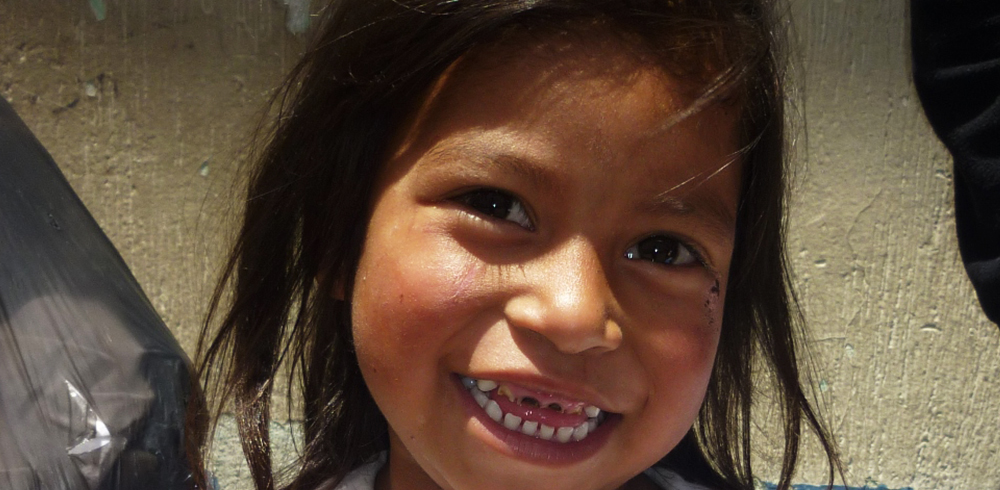
Who is acting collectively? | How it works | Find out more
We are working to reduce the number of children and adolescents who do not have an official personal identification, for any number of reasons, including: scarcity of economic resources, cumbersome procedures, parents also lacking document identity, lack of access and awareness of the process of birth registration, among others.
The importance of birth registration becomes apparent as the child grows. Without it they often cannot access any government support, enrol in school, get a job, vote or be buried – because officially they do not exist. This status means that these children are more vulnerable to abuse and exploitation.
The overall objective of the programme is to see a significant increase in the number of children registered – this can be part of our holistic approach with the children we work with in conjunction with other programmes or as a specific focus working with the authorities. If the later, it usually involves first building the access and local capacity for the registration of children and adolescents, and then the community awareness to encourage a more visible and improved process.
This programme requires cross-sector collaboration. Network members usually provide the volunteers working with the local communities, but the authorities need to commit to improve the process and increase the number of registration centres that the local communities can access.
The city and government authorities are keen to engage with civil society in this way as they recognise the size of the task and the lack of trust of the ordinary people.
Networks running this programme conduct an analysis of the registration situation and of the process of identifying unregistered children and adolescents, and their families. Key areas that are worked on to improve the rate of birth registration is:
- Community awareness of the importance of registration of children and adolescents
- Knowing the basic processes and procedures, the documents, people and signatures required (this is to ensure the time and effort attending a registration is not wasted through ignorance of what is required)
- Knowing the different types of cases and the different requirements of each (if one of the parents is unknown or missing, if the parents are foreign or have no papers of their own etc)
- Number and accessibility of registration centres.
Main activities carried out include:
- Inter-institutional coordination with governmental and non-governmental organisations. This includes working with the officials (the registration officials are often perceived as being dismissive and obstructive mainly through not taking the time to explain and help people to understand)
- Collection of information via a survey concerning the registration of minors
- Presentation of the information gathered
- Development of a database of children and adolescents who did not have a personal identification document
- Support for people in the process of requesting an identification document includes working with and volunteers in the community to accompany applicants through the process with support and encouragement not to give up
- Legal aid in cases taken to court
- Technical assistance and economic support in the paying of fines.
- Compilation of documents including: birth certificate issued by midwives or doctors of hospitals that attended the births; personal identification document of the parents (original and copy); witness testimonies sworn before the civil registrar; original and copy of personal identification documents of the two witnesses; application form for signing up outside the allotted time; proof of residence issued by a municipal or other appropriate authority.
You can read more about Birth Registration in Guatemala here.
We are also working to promote birth registration in Nepal. Read about this work here.
If you would like to find out more about Viva’s work with birth registration we would love to hear from you. Please contact us on (+44) 1865 811 660 or info@viva.org
